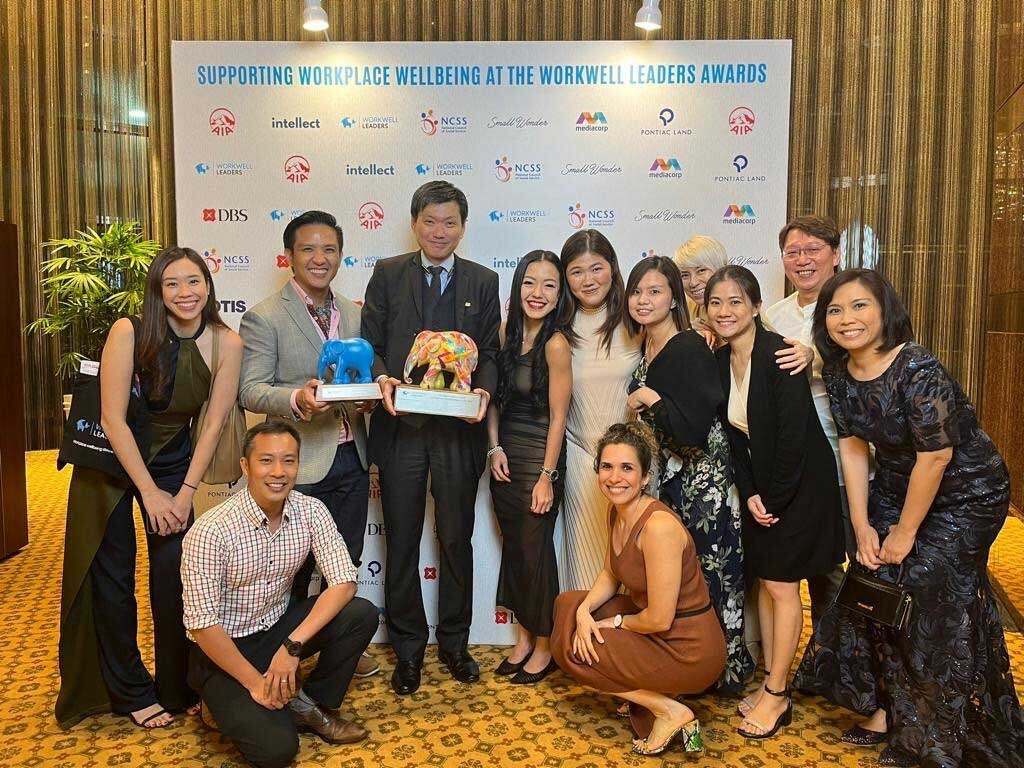

NUS was recognised with two accolades at the inaugural WorkWell Leaders Awards and Gala Dinner held on 31 March 2023. The University bagged the overall Wellbeing Organisation of the Year Award for its efforts towards prioritising mental well-being in the workplace. NUS President Professor Tan Eng Chye was also conferred the Wellbeing Leader Award 2023, for setting the tone and culture for building a mentally healthy workplace.
Organised by WorkWell Leaders, a community of CEOs and leaders championing workplace mental health and well-being as a strategic priority and board agenda, the Awards recognise Singapore-based organisations and individuals who strive to create a mentally healthy and thriving workplace.
At the height of the COVID-19 pandemic in 2020, Prof Tan set up the NUS Health and Wellbeing Unit (HWB), under the Office of the President, to look into strategies to promote health and wellness. He also goes on daily morning walks where he checks in with staff and shares his own mental health journey with them.


The HWB team facilitates the mental, physical, and social well-being of both NUS students and staff. To better support and care for the University community, it has in place a series of initiatives ranging from counselling, interactive activities, various programmes and self-help resources to help individuals better manage and take charge of their personal well-being. Its latest initiative, (kind)mind, seeks to build a safe space within NUS to discuss and seek support for mental health; inculcate a culture of compassion; and build a blueprint for other institutions and organisations to follow.



































